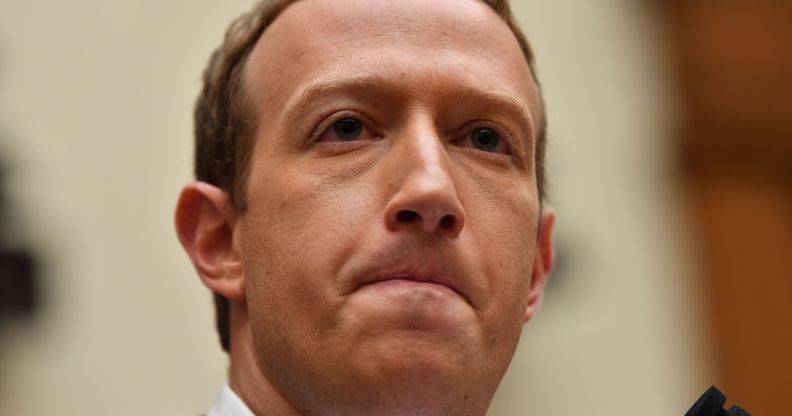Facebook rejects PrEP awareness campaign but will allow politicians to post lies

Mark Zuckerberg testifying infront of lawmakers including Alexandria Ocasio-Cortez. (Getty)
As Facebook comes under fire for allowing lies in political advertising, the platform has rejected a PrEP awareness campaign because it contained “social issues, elections or politics”.
Apicha Community Health Center wanted to run advertising on Instagram (which is owned by Facebook) to promote public awareness of PrEP, a drug which can prevent HIV transmissions.
Despite Facebook’s newly-relaxed rules around political advertising, the New York-based centre – which serves people of colour and the LGBT+ community – was told that it could not run the adverts because it “hadn’t been authorised to run ads about social issues, elections or politics”.
“They said the copy was the problem but were unable to tell us what part of the copy was too political,” Phillip Miner, Apicha’s director of grants and communications, told Vice.
Facebook told PinkNews that the advert had been rejected because Apicha hadn’t completed a user verification process.
“We’ve had a policy for some time that requires US advertisers running ads about social issues, elections or politics to complete an ad authorisation process before they can run ads targeted to people in the US,” a spokesperson said.
“We have this policy to ensure that we prevent foreign interference in elections and provide more information about who is behind ads on Facebook. Apicha had not completed the authorisation process, which meant some of their ads were rejected.”
Miner told Vice that it would not be possible for Apicha to complete this authorisation process because of a member of staff who uses a name on Facebook that doesn’t match their government ID for personal reasons. On Facebook’s help centre, it states that a person must show at least one form of ID confirming the name they use on the site.
Apicha wanted to target Asian and Pacific Islander community
Since PrEP was introduced in the US in 2012, rates of HIV transmissions among white, black and Latinx men who have sex with men in New York has fallen almost consistently. But among Asian and Pacific Islanders (API) men, the number of new cases has remained stubbornly static.
In an attempt to change this, the Apicha Center’s Instagram account has been posting content created by and featuring API men which talks about PrEP.
It wanted this content to form the basis of a paid advertising campaign, which would have meant that API men who don’t follow its account would see the posts in their feeds.
Facebook allows lies in political adverts.
The Vice report comes days after Facebook founder and CEO Mark Zuckerberg was grilled by congresswoman Alexandria Ocasio-Cortez over the site’s decision to allow political advertising that includes lies.
The company quietly withdrew a policy of banning false claims in advertising – including in political advertising – in early October, sparking concerns that it could be used to deceive voters.
Zuckerberg appeared visibly shaken on Wednesday, October 23, as Ocasio-Cortez asked him whether she would be able to “pay predominantly black zip codes advertise them he incorrect election date” or “run advertisements targeting Republicans in primaries saying that they voted for the Green New Deal”.
Zuckerberg said that adverts which could cause census or voter suppression would not be allowed, but did not say whether mistruths would be taken down.
“So, you won’t take down lies or you will take down lies? I think that’s just a pretty simple yes or no,” Ocasio-Cortez asked.
In response, Zuckerberg obfuscated, citing “context”.

